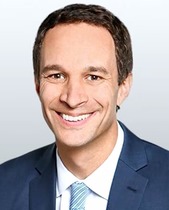
Personal Finance
Personal Finance is all the decisions you make to earn, budget, save, spend and give your money. It involves evaluating your income (the money you earn on a regular basis), your recurring expenses (like rent or insurance payments), and how much you want to save or want to invest. Personal finance is not a one-and-done deal and keeping track of your finances is a lifelong practice. Good financial management comes down to having a solid plan and sticking to it. Understanding how to manage your finances is a crucial life-planning tool that can help you lead a life without debt, gain control of financial stresses and manage the expensive surprises that life can throw at you.
Experts
Andrew Campbell
Andrew Marshall
Avery Breyer
Axel Merk
Barbara Friedberg
Barry Glassman
Bernie Kent
Bert Schweizer
Beth Kobliner
Bill Danko
Blair DuQuesnay
Brandon Turner
Brett Whysel
Brian Levitt
Brian Overby
Bruce Helmer
Carrie Schwab-Pomerantz
Cary Carbonaro
Dan Lok
Dana Anspach
David Crook
Ed Slott
Eli Rauch
Eric Tyson
Gary Anetsberger
George Gammon
Hart Lambur
Howard Lindzon
Jane Bryant Quinn
Jason Kelly
Jason Pizzino
Jason Raznick
Jason Simpkins
Jason Zweig
Jeff Gitterman
Jesse Mecham
Jim Dahle
Jim Lowell
John Stein
Josh Dorkin
Karen Blumenthal
Ken Boyd
Ken Little
Kori Hale
Laura Shin
Laurence Kotlikoff
Lazetta Braxton
Lee Robertson
Logan Mohtashami
Louis Barajas
Lyle Wolberg
Marc Lichtenfeld
Markus Heitkoetter
Matt McCall
Matthew Tuttle
Merryn Somerset Webb
Michael Finke
Micky Malka
Mike Piper
Morgan Housel
Morgen Rochard
Nate O'Brien
Nick Maggiulli
Nilus Mattive
Paul Tanner
Peter Lazaroff
Peter Mallouk
Preston Pysh
Rachel Cruze
Ramit Sethi
Reuben Advani
Ric Edelman
Rita Cheng
Rob Riedl
Robert Farrington
Roger Wohlner
Ron Carson
Russel Kinnel
Sallie Krawcheck
Sam Dogen
Scott Tiras
Scott Trench
Sharon Oberlander
Shlomo Benartzi
Stephen Janachowski
Steve Burns
Suze Orman
Ted Jenkin
Ted Seides
Tiffany Aliche
Tom Bruni
AREAS OF PERSONAL FINANCE
Income.
Income refers to a source of cash inflow that an individual receives and then uses to support themselves and their family. It is the starting point for our financial planning process.
Spending.
Spending includes all types of expenses an individual incurs related to buying goods and services or anything that is consumable. All spending falls into two categories: cash and credit.
Saving.
Saving refers to excess cash that is retained for future investing or spending. If there is a surplus between what a person earns as income and what they spend, the difference can be directed towards savings or investments.
Investing relates to the purchase of assets that are expected to generate a rate of return, with the hope that over time the individual will receive back more money than they originally invested.
Protection.
Personal protection refers to a wide range of products that can be used to guard against an unforeseen and adverse event. Common protection products include life insurance, health insurance, and estate planning.
THE BASICS OF PERSONAL FINANCE
Do a monthly budget.
Budgeting is simply making a plan for your money. It’s the foundational habit you build all other money habits on.
Live on less than you make.
If you realize you have more money going out than coming in every month, you need to adjust your spending.
Save an emergency fund.
You need to save for a rainy day. When you’ve got an emergency fund in place, you’ll be ready for whatever comes your way.
Get out and stay out of debt.
Your income is your greatest wealth-building tool. And when you pay off your debt, you take back your paycheck—and your life.
Plan for the future.
As far as investment strategy goes, you want your money evenly spread across the four kinds of mutual funds: growth, growth and income, aggressive growth, and international.


























































































